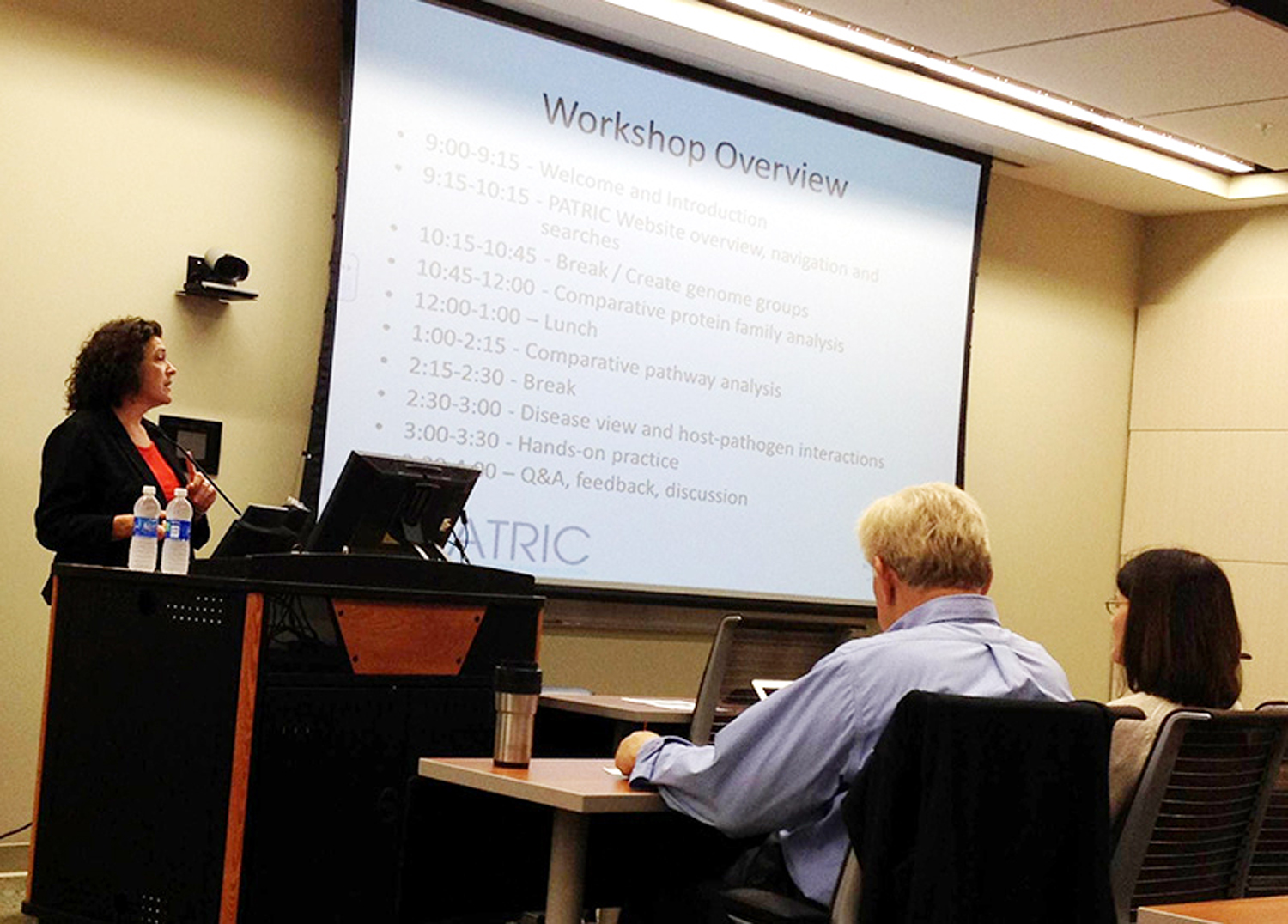Scientists aid in fighting deadly, drug-resistant tuberculosis around the world

Researchers at Virginia Tech's Virginia Bioinformatics Institute have recently returned from a trip halfway across the globe in the race to confront drug-resistant tuberculosis.
As part of a week-long course in comparative genomics organized by researchers from the Broad Institute, senior bioscientist and computational biologist Rebecca Wattam trained participants in Africa to use the Pathosystems Resource Integration Center (PATRIC).
PATRIC is a Web-based portal that provides bacterial infectious disease researchers with analysis tools and comparative data.
Training took place at the Kwazulu-Natal Research Institute for Tuberculosis and HIV in Durban, South Africa.
“This course is especially important because it helps clinicians better understand how genomics and genomics resources can help them find better drug targets and thus ultimately create better therapies against drug-resistant TB,” Wattam said.
Tuberculosis, commonly known as TB, is a deadly disease caused by the bacterium Mycobacterium tuberculosis.
It has been declining until recently, when drug-resistant strains of the disease became more widespread, especially among patients whose immune systems were already compromised, such as people suffering from AIDS.
PATRIC helps combat diseases like TB by providing analysis tools to aid in identifying and studying bacterial genomes and related information. It has been in development over the last nine years as part of a contract with the National Institute of Allergy and Infectious Diseases, part of the National Institutes of Health, and was instrumental in aiding scientists in understanding the European E. coli outbreak in 2011.
Wattam joined five scientists from the Broad Institute and one from the Africa Center for Health and Population Studies as instructors.
The training is the latest in a series of almost 20 workshops featuring PATRIC with more than 600 total participants from the United States and other countries to create on-the-ground collaborations with international researchers battling bacterial diseases.
“The bioinformatics course was extraordinarily well-received," said Dr. William Bishai, laboratory head at Howard Hughes Medical Institute and co-director of the Center for Tuberculosis Research at the Johns Hopkins University School of Medicine. "There has been a groundswell of praise for the thoroughness and preparation that went into the course."
Financial support for the course was provided by the National Institute of Allergy and Infectious Diseases, Kwazulu-Natal Research Institute for Tuberculosis and HIV and its Connect Africa Scholarships.
The PATRIC Project is one of five Bioinformatics Resource Centers for Infectious Diseases program funded in whole or in part by the National Institute of Allergy and Infectious Diseases and the Department of Health and Human Services. Each center specializes in a different group of pathogens including agents with bioterrorism potential and pathogens causing emerging infectious diseases. PATRIC is funded under Contract No. HHSN272200900040C to B.W. Sobral.



.jpg.transform/m-medium/image.jpg)
